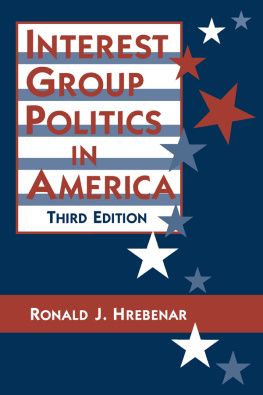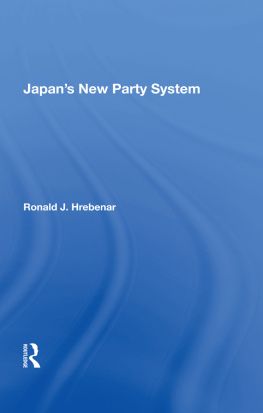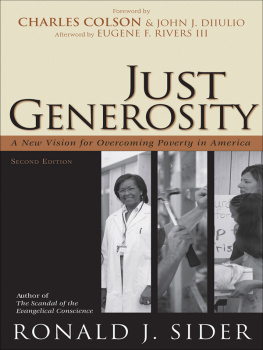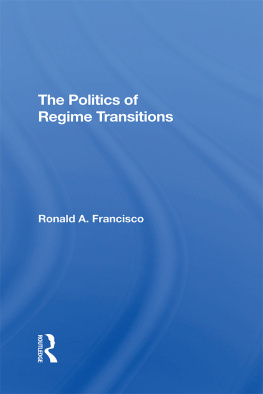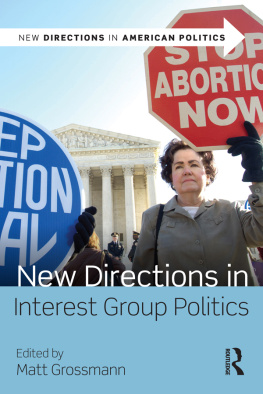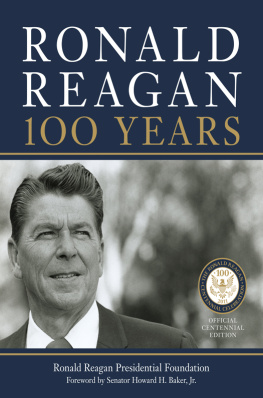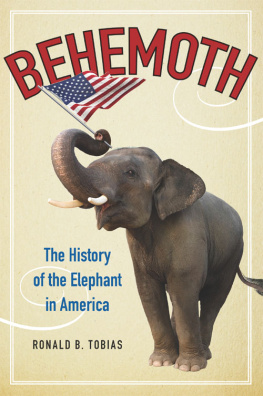First published 1997 by M.E. Sharpe
Published 2015 by Routledge
2 Park Square, Milton Park, Abingdon, Oxon OX14 4RN
711 Third Avenue, New York, NY 10017, USA
Routledge is an imprint of the Taylor & Francis Group, an informa business
Copyright 1997 Taylor & Francis. All rights reserved.
No part of this book may be reprinted or reproduced or utilised in any form or by any electronic, mechanical, or other means, now known or hereafter invented, including photocopying and recording, or in any information storage or retrieval system, without permission in writing from the publishers.
Notices
No responsibility is assumed by the publisher for any injury and/or damage to persons or properly as a matter of products liability, negligence or otherwise, or from any use of operation of any methods, products, instructions or ideas contained in the material herein.
Practitioners and researchers must always rely on their own experience and knowledge in evaluating and using any information, methods, compounds, or experiments described herein. In using such information or methods they should be mindful of their own safety and the safety of others, including parties for whom they have a professional responsibility.
Product or corporate names may be trademarks or registered trademarks, and are used only for identification and explanation without intent to infringe.
Library of Congress Cataloging-in-Publication Data
Hrebenar, Ronald J., 1945
Interest group politics in America / by Ronald J. Hrebenar.3rd ed.
p. cm.
Includes bibliographical references and index.
ISBN 1-56324-702-X (cloth: alk. paper)
ISBN 1-56324-703-8 (pbk: alk. paper)
1. Pressure groupsUnited States.
2. LobbyingUnited States.
I. title.
JK1118.H73 1997
324.40973dc20
96-29103
CIP
ISBN 13: 9781563247033 (pbk)
ISBN 13: 9781563247026 (hbk)
For
Mari
Politics in the United States is often defined in terms of interest group politics. In books, in New York Times articles, and in television news reports, observers of American politics chronicle the clashes of interest groups in the various political arenas throughout the nation and even the world. In the European Economic Community, for example, interest groups and their lobbyists battled in Brussels, Strasbourg, and Luxembourg EEC offices to gain advantages for their products as the thirteen European nations moved toward full integration.
The number of participants in American interest group politics has significantly expanded. During the Reagan-Bush years, conservative groups joined liberal public-interest groups, which emerged as powerful Washington actors during the 1960s and 1970s. Formerly unorganized sectors such as fundamentalist Christians, gays, and environmentalists have organized and are having a significant impact on American politics.
Additionally, interest groups continue to challenge political parties as the dominant political organizations of American politics. The era of new politics, a term describing the decline of political parties and the rise of interest groups as articulators of political demands, continues nearly unabated on both the national and state levels. Functions that political parties used to perform, such as candidate selection, fund raising, and drafting legislation, are now being taken over by interest groups. Interest groups are proving to be more flexible than parties in meeting the wide range of political demands and tasks placed on American political organizations.
As a teacher of university courses on interest groups, political parties, public opinion, and public policy, I have long felt that part of this process has been very well examined and part has been relatively untouched. Ruth Scott and I coauthored two editions of a book that detailed the decline of political parties, and this third edition of Interest Group Politics in America represents the logical progression in a continuing and more comprehensive discussion of the problems of the American public policy process.
Despite the increased attention paid to lobbying during the past fifteen years, there are still few published textbooks in the field of interest groups and lobbying. The central objective in publishing this text is to offer in a book of reasonable proportions all the major topics of relevance to the student of lobbying. Thus, in Interest Group Politics in America you will find the foundations of group power, the strategies and tactics of lobbying, the interaction of lobbying and governmental institutions, a discussion of traditional lobbies, and public-interest groups. Reflecting the increased role played by money in interest group politics, a new chapter on PACs and money was added to the second edition in 1990. The new chapter for 1997 is an expanded examination of grassroots lobbyingthe current boom sector of interest group lobbying.
I also try to guide the reader through the changing nature of power politics in Washington, D.C. The changing of the guard in 1993 when the Clinton administration ended twelve years of conservative GOP rule certainly changed the style of group politics as well. Perhaps even more significant was the loss of the control of Congress by the Democrats and their interest group allies in the 1994 elections. Environmentalist groups, for example, suffered through twelve long years of the Reagan administration and adopted strategies that attempted to minimize losses sustained during those difficult times. Organized labor, so strong during the Kennedy and Johnson administrations, continues its decades-long decline as business groups grow in power in the era of deregulation. Both of these movements expected better political access in a Clinton-dominated Washington, D.C, but Speaker Newt Gingrich had different plans.
Finally, technological innovations have revolutionized lobbying strategies and tactics in recent years. The use of computers, data processing, direct-mail solicitation, and the increased use of media have given interest groups the tools to increase their impact on the policymaking process. By 1996, the Internet had also become a lobbying tool. Consequently, I have concentrated the revisions in this third edition on these changes and on differentiating clearly among traditional, electronic, and grassroots lobbying styles.
The revision of the third edition of Interest Group Politics in America was entirely my responsibility. The first edition was a joint effort by Ruth Scott and Ron Hrebenar, but by the time the second edition was revised, family pressures on Ruth Scott precluded her participation. The original division of writing in the first edition was as follows: Ron wrote what are now was coauthored.
I wish to give sincere appreciation to editors at M.E. Sharpe who believed in the need for such a book and worked hard to bring it to a new and better third edition. Patricia Kolb was very important and supportive. Other M.E. Sharpe personnel who were particularly important in this process were Elizabeth Granda and Ana Erli.
I would also like to mention two Prentice Hall political science editors: Stan Wakefield, who brought the first edition to reality; and Karen Horton, who patiently coordinated the second edition. Many others, too many others to mention, who reviewed various editions and then adopted the book in its various editions have made very important suggestions and recommendations. I gratefully adopted many, and others, I regret, were unable to fit into the final revision. I thank all these people for their interest and assistance. Please keep those suggestions coming.


